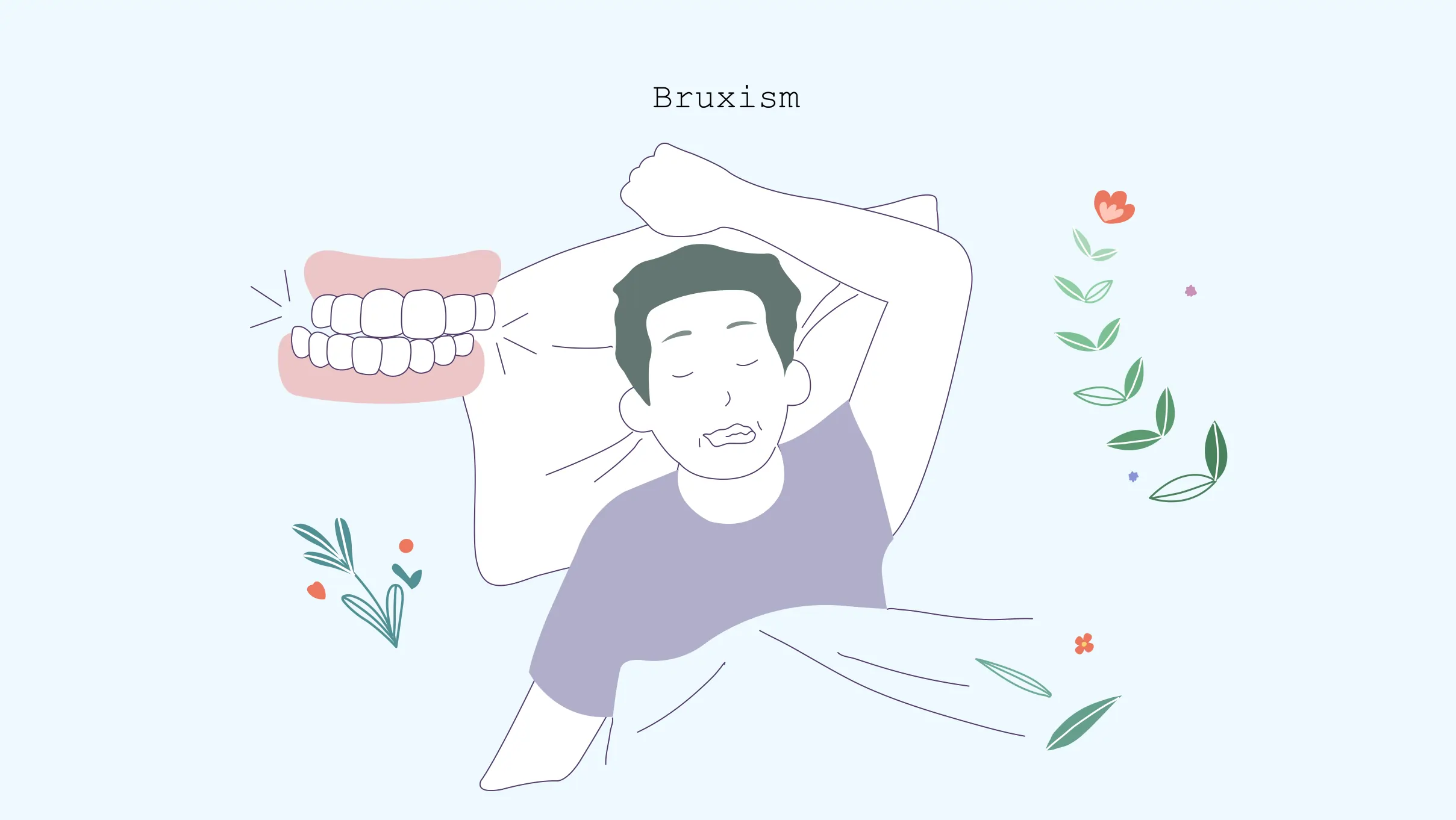Bruxism: Teeth Grinding
Written by


Have you ever clenched your teeth or noticed your child sometimes grinds their teeth at night? When this becomes a frequent occurrence, it is known as bruxism. While this condition doesn’t cause any harm, it can lead to dental damage and oral complications in the longer run. In this article, we are here to tell you everything you must know about bruxism.
What is Bruxism
Bruxism is when people grind their teeth, causing jaw pain and tooth problems. This is bruxism definition. It usually goes undetected as it occurs during sleep. To rectify this ailment, it is essential to speak with your doctor.
What Causes Bruxism?
Bruxism can occur in both children and adults. Some of the causes of bruxism include;
- Lifestyle habits, such as smoking or drinking alcohol
- Using recreational drugs
- Consuming lots of caffeine (more than six cups a day)
- Sleep disorders
- Stress and anxiety
- Certain medications
Symptoms
If you have bruxism, you may not realise it unless you notice the symptoms associated with the condition. Let’s now take a look at all bruxism symptoms;
- Interrupted sleep
- Headaches or facial pain
- Earaches
- Locked Jaw
- Pain while eating
- Wear and tear of teeth
- Teeth fractures
- Sore jaw
- Noticing loss or painful teeth
What Are the Types of Bruxism?
Bruxism can occur both when you are asleep and awake. There are two types of bruxism.
Awake bruxism
Awake bruxism is mainly tied to stress and anxiety, where you tend to clench your jaw tightly or grind your teeth due to overwhelming emotions. It also occurs when you are concentrating on something. However, it is not dangerous since you tend to stop it once you notice.
Sleep bruxism
You grind your teeth when fast asleep, which can be dangerous since you are unaware. Hence, you may not be aware of the same. Also, people with sleep bruxism may not realise it, and they excrete too much pressure, almost 250 pounds of force.
Why is Teeth Grinding Harmful?
Bruxism can lead to several problems, which include;
- Changes in the way you look or your facial profile
- You may experience fractured or loose tooth
- Your jaw or neck muscles may hurt
- Losing or wearing down your teeth
Who is at Risk for Bruxism?
Both men and women are at equal risk. However, if you have a family history of bruxism, you are more likely to experience the same.
- It is believed that people who are more driven are more at risk to grind their teeth
- Stress
- Using certain medications, such as anti-anxiety
- Smoking or consuming too much caffeine
Can Children Have Teeth Grinding?
Yes, teeth grinding is more common than you think. Almost 3 out of 10 children experience it at least once before the age of 5. It is generally not dangerous, and they outgrow it by the age of 6. It is also a condition that can occur due to teething or faulty tooth alignment.
What Can I Do to Stop Grinding My Teeth?
How to stop grinding teeth? Well, we bring you a few tips right here.
Medications: If you notice the symptoms of bruxism, your doctor may recommend medications to treat the same. It is one of the best ways on how to relieve tooth pain from grinding.
Sleep-related disorders: Some conditions, such as sleep apnea, can lead to bruxism. Therefore, bruxism treatment may include treating sleep disorders.
Medical conditions: Sleep bruxism can occur due to medical conditions, such as GERD, and treating the problem can help improve bruxism teeth.
When to See A Doctor?
If you are looking for ways to how to stop grinding teeth, then it is always a good idea to speak with your doctor as soon as you notice the symptoms.
Conclusion
Bruxism is an entirely treatable condition. While the symptoms may not be easily understood, it is important to opt for proper treatment once you notice them.
FAQs
How do you get rid of bruxism?
You can eliminate bruxism by speaking with your doctor and opting for proper treatment.
What are the 3 common causes of bruxism?
The three most common causes of bruxism include smoking, drug use, and stress.
What does bruxism pain feel like?
The pain from bruxism can be very sharp or achy.
people like this article
Written by








